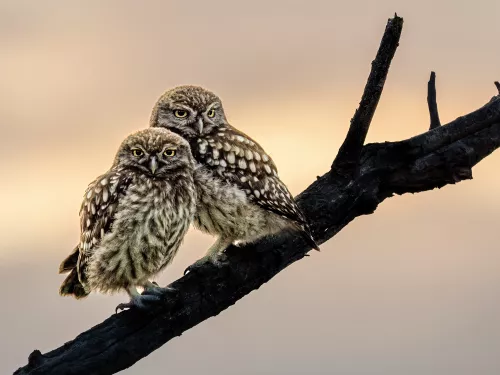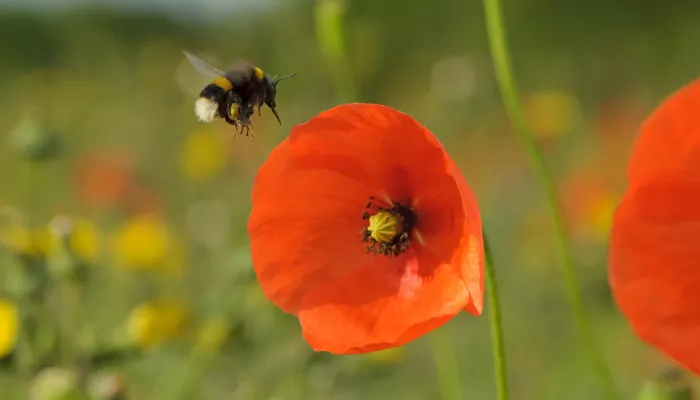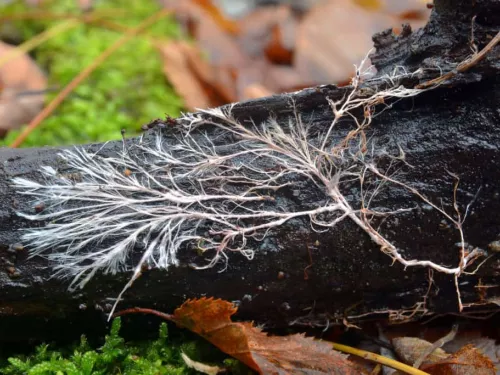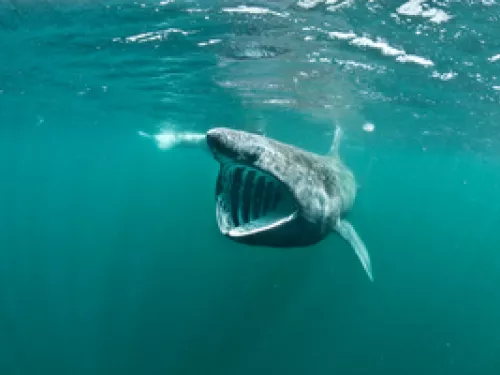
If you go down to the woods today – 9 surprising animals to look out for amongst the Kentish trees
Volunteer Matt Huggins explores some of the lesser-known but still fascinating animals that grace our woodlands.


Chris Gomersall/2020VISION
For most of us, a big pile of poo is a pretty unappealing prospect. But for some creatures, there’s no finer sight than a massive mound of dung. By feasting on faeces, these flies, beetles and other waste-loving wildlife prevent poo from building up in pastures, improve soils and even help control pests.
Rollers - the beetles often seen on nature shows, rolling balls of poo across the African savannah - get most of the attention but aren’t found in the UK. Instead, our dung beetles are either tunnellers or dwellers. Tunnellers, like the mighty minotaur beetle, drag dung down into their burrows to feed their larvae, whereas dwellers can spend their entire lives within the confines of a dung pile.
The Maid of Kent Beetle is one such poo loving creature. With a hotspot in North Kent, this very scarce rove beetle is attracted to piles of dung where it feeds on the other insects lurking within.
If you’re not keen on the idea of piles of poo left littering the landscape, imagine how much worse things would be without the host of insects that feed on carrion. Animal carcasses could take months to rot without the swift action of maggots and beetles, like the bright, orange-splashed sexton beetles. Male and female sexton beetles work together to dig beneath the bodies of dead birds and small mammals, burying them to create a larder for their growing larvae.

Common Sexton Beetle ©Richard Burkmarr
Insects are a vital food source for many species, including bats, reptiles, amphibians, fish and birds. Great spotted woodpeckers hammer at rotting wood, prying beetle larvae from behind the bark with their long tongue. Blue tits collect caterpillars to feed their chicks and Daubenton's bats scoop aquatic insects from the surface of lakes and rivers. But falling insect numbers have already been linked to declines in some of the species that rely on them, like the spotted flycatcher, a bird whose UK population plummeted by 93% between 1967 and 2016. If our insects disappear, so will the countless other species that depend on them.
Some insects have a bad reputation. Ants and wasps aren’t the most popular creatures, but they’re no less important than the more widely appreciated species like butterflies and dragonflies. Wasps are great natural pest control agents, hunting many of the insects that feed on our crops and garden plants. Ants, wasps and other burrowers aerate the soil, digging tunnels that help transport oxygen, water and nutrients to plant roots.

Wasp, Vespula vulgaris, on Ivy flower, Hedera helix, Peak District - Paul Hobson
We’re facing a global biodiversity crisis, with many species declining at an alarming rate. Animals and plants that were once common are now scarce, and insects are no exception. Recent evidence suggests that insect abundance may have declined by 50% or more since 1970, but insect declines are not as well studied as those in larger animals.
At Kent Wildlife Trust we have been surveying insects through our ‘Bugs Matter’ project to find out more about how insect numbers are changing in the county. The results in 2019 indicated that there were 50% fewer insects recorded in Kent since 2004.
Take part in the survey this year to help us understand this further:
You can read more about our disappearing insects in Insect declines and why they matter
But it’s not too late. Insect populations can recover rapidly if given the chance and small actions can make a big difference. You can help in many ways, including letting some of your lawn grow into a meadow, planting pollinator friendly plants and reducing your use of pesticides. Find out more here:

Volunteer Matt Huggins explores some of the lesser-known but still fascinating animals that grace our woodlands.

Volunteer Matt Huggins explores the underground secrets of mycorrhizal networks and how they help trees to communicate with one another.

You hear “shark”, you think Jaws. Sadly, this is true for many of us… but then who hasn’t been slightly traumatised by Steven Spielberg’s enduring epic?